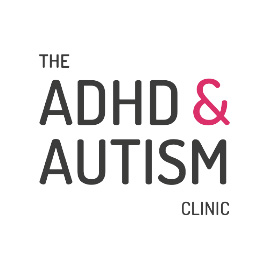Practical Tips and Academic Strategies for Students With ADHD at University
For many individuals with Attention Deficit Hyperactivity Disorder (ADHD), the transition to higher education can present distinct challenges. The shift from a structured school environment to the relative independence of university life often requires significant adjustments. However, with the right strategies and support systems in place, students with ADHD can not only manage but also thrive academically and personally.

Understanding ADHD in the University Context
ADHD is a neurodevelopmental condition characterised by patterns of inattention, hyperactivity, and impulsivity that are not age-appropriate. In a university setting, these symptoms may manifest as difficulties with time management, organisation, sustained attention during lectures, and prioritisation of tasks.
It is important to recognise that ADHD affects each individual differently. Some students may struggle with initiating tasks, while others may find it challenging to maintain focus over extended periods. Emotional regulation difficulties may also emerge, particularly in response to academic pressures or social dynamics.
Further information about ADHD symptoms and diagnosis can be found on the UK Adult ADHD Network (UKAAN) website.
Preparing for University Life
Preparation is key to easing the transition to university. Students with ADHD are encouraged to take the following preparatory steps:
Early Disclosure and Support Registration
It is advisable to disclose the ADHD diagnosis to the university’s disability support services as early as possible. This allows the institution to implement reasonable adjustments, which may include:
- Extra time in examinations
- Note-taking assistance
- Access to quiet study spaces
- Support with organisation and planning
We offer comprehensive assessments and support for individuals preparing for higher education.
Familiarisation with Campus Resources
Prior to the start of term, students may benefit from familiarising themselves with key campus locations such as lecture halls, libraries, and support centres. Orientation programmes and campus tours can be valuable in reducing anxiety and promoting confidence.
Academic Strategies for Success
Once enrolled, students with ADHD can implement various academic strategies to support their learning.
Structured Study Schedules
Creating a consistent study routine helps establish predictability. Students are encouraged to:
- Use planners or digital calendars
- Break tasks into smaller, manageable segments
- Allocate specific times for reading, assignments, and revision
- Digital tools such as time management apps can offer helpful reminders and prompts.
Active Learning Techniques
Active engagement with course material can enhance focus and retention. Techniques may include:
- Summarising information in one’s own words
- Teaching concepts to peers
- Utilising visual aids such as mind maps
Effective Note-Taking
Students may find it helpful to experiment with various note-taking methods to identify what works best. Options include:
- Cornell method
- Mind mapping
- Audio recordings (with permission from lecturers)
Assistive technologies, such as speech-to-text software, can further support note-taking and written assignments.
Managing Time and Deadlines
Time management represents a frequent area of difficulty for students with ADHD. The following strategies may assist:
- Prioritisation – Students are encouraged to categorise tasks based on urgency and importance. Tools such as the Eisenhower Matrix may aid in visualising priorities.
- Use of Timers and Reminders – Setting timers for study sessions and using reminder alerts can help maintain focus and ensure that important deadlines are met.
- Accountability Partnerships – Partnering with a peer or mentor to review progress regularly can provide external accountability and motivation.
- Emotional Wellbeing and Self-Care – University life can be emotionally demanding. Students with ADHD may benefit from proactively addressing their wellbeing.
- Establishing Routines – Regular sleep schedules, balanced nutrition, and physical activity contribute to overall stability and cognitive functioning.
Utilising University Support Services
Most universities provide a range of support services, including:
- Disability support offices
- Academic skills centres
- Library support services
- Career counselling
- Students are encouraged to make use of these resources proactively.
For further guidance, the ADHD & Autism Clinic offers consultation services for students and their families.
On-Site Support
Accessing Counselling Services – Many universities offer counselling services that can support emotional regulation, stress management, and coping strategies. The National Autistic Society also provides resources that may be relevant for students with co-occurring autism and ADHD.
Mindfulness and Relaxation Techniques – Practices such as mindfulness meditation, deep breathing exercises, and progressive muscle relaxation can assist in managing anxiety and promoting concentration.
Social Integration and Support Networks – Building a supportive social network can enhance the university experience.
Joining Student Societies – Participation in societies or clubs aligned with personal interests can foster a sense of belonging and community.
Peer Support Groups – Some institutions offer specific support groups for students with ADHD or other neurodevelopmental conditions. Engaging with peers who share similar experiences can provide encouragement and practical advice.
Communicating with Academic Staff – Establishing open communication with tutors and lecturers allows students to discuss any difficulties and seek appropriate accommodations.
Conclusion
Navigating university with ADHD presents distinct challenges, yet with tailored strategies, supportive networks, and proactive planning, students can experience academic and personal success. Early preparation, structured routines, effective study techniques, and access to available support services can all contribute to a rewarding higher education experience.
Frequently Asked Questions (FAQs)
1. What support is available for university students with ADHD?
Universities offer disability support services that can provide accommodations such as extra exam time, note-taking assistance, and academic coaching.
2. Is it necessary to disclose my ADHD diagnosis to the university?
While disclosure is voluntary, informing the university allows access to tailored support and reasonable adjustments.
3. How can I manage time effectively at university?
Using planners, setting timers, breaking tasks into smaller steps, and seeking accountability from peers or mentors can assist with time management.
4. Are there specific study techniques that help with ADHD?
Active learning methods such as summarising, teaching others, and using visual aids often help maintain focus and improve information retention.
4. Can counselling services help with ADHD-related challenges?
Yes. University counselling services can assist with stress management, emotional regulation, and coping strategies specific to ADHD.
Glossary
ADHD (Attention Deficit Hyperactivity Disorder): A neurodevelopmental condition characterised by patterns of inattention, hyperactivity, and impulsivity.
Neurodevelopmental Condition: A disorder that affects the development of the nervous system, impacting behaviour, cognition, and learning.
Reasonable Adjustments: Modifications or accommodations provided to ensure individuals with disabilities can participate fully in education or employment.
Active Learning: An approach to learning that involves engaging with material through activities such as discussion, teaching, or application.
Eisenhower Matrix: A time management tool that helps prioritise tasks based on urgency and importance.
Mindfulness: A practice involving focused attention on the present moment, often used to reduce stress and improve concentration.
Assistive Technology: Tools or software designed to support individuals with disabilities in their daily tasks or learning activities.
Disclosure: The act of informing an institution or employer about a disability or medical condition in order to access support and accommodations.
